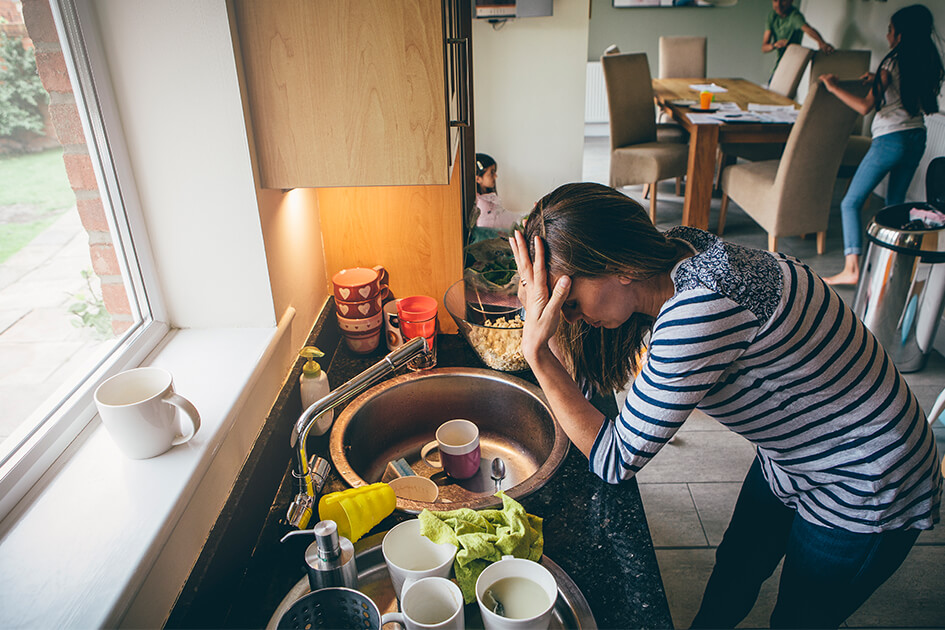The lockdown has messed up not just the sleep cycle of individuals but also the menstruation cycle. People who bleed when consulting the doctor these days in regard to unusual periods are often told it’s either stress-related or a lifestyle disorder. The rising cases of PCOD in adolescent girls and womxn is proof that induced stress in our daily routine is slowly and steadily becoming hazardous for reproductive health. Polycystic Ovarian Disease is a condition wherein ovaries enlarge with cysts forming on the outer edges. It is a hormonal disorder with various noticeable symptoms. The following is a list of signs that can be spotted if you’re having PCOD.
* Irregular periods
* Heavy bleeding
* Hair growth- on back, belly, and chest.
* Acne
* Weight gain
* Male pattern baldness
* Darkening of the skin
* Headaches

The condition isn’t exactly modern, in 1721 Italian physician Antonio Vallisneri talked about it. PCOD cannot be cured, however, medication and adhering to precautions can reduce the intensity. Since it is a hormonal disorder, an imbalance of hormones can affect the body in a variety of ways. As ovulation is not regular, infertility can be seen. High or low blood sugar levels could lead to diabetes. The exact causes of this disorder aren’t known but genetics, unhealthy lifestyle and hormonal changes are considered plausible explanations. It is also believed that PCOD could result in stress, anxiety and depression but could these psychological factors also be causes of PCOD? Yes, it is possible.
One may find it unacceptable that mental health could affect reproductive health because stress and anxiety are seen as invisible problems. We think they do not display any kinds of biological changes in the body. This is false. When a person is under stress, the body goes into fight or flight mode. The hormone that is secreted during this phase is cortisol.
According to Dr Kollikonda, “When under stress, your body produces cortisol. Depending on how your body tolerates stress, the cortisol may lead to delayed or light periods or no period at all (amenorrhea)”.
Now, it is important to note that missing a period is okay to some extent but if it goes missing for several months, then the condition becomes worse. Also, it is not necessary that if you missed your period due to stress, you also have PCOD. Stress is not the root cause of PCOD, rather just a contributing factor. The symptoms mentioned earlier must be seen in order to diagnose PCOD. Doctors also require an ultrasound to confirm the presence of cysts.
Even though stress has a book definition, I think it is still an abstract idea. What’s stressful for me may not be a stressor for you. How I perceive stress and let it affect me isn’t going to be the same for the other person. Hence, if one person is suffering from the absence of periods for 5-8 months, the other may be having painful menstruation throughout the timeframe.

Having negativity around you and inside of you is far lethal than we think it is. Disregarding mental health for years has taught us how negligence behaviour is the primary cause of diseases nowadays. The daily stress of life is bound to take place and is unavoidable but too much stress or accumulating stress that remains unresolved is what harms the reproductive health of a human. Womxn with PCOD find it hard to get pregnant and the mood swings are terrible. Hormonal imbalances can create hurdles in social life as well.
Why womxn fail to reduce stress levels is because they don’t recognise what the stressor is. Today, body image issues are peaking. No doubt it could be one of the reasons why menstrual problems are rocketing. Lockdown got us scrolling through social media looking at unrealistic standards of life, leaving us hopeless and worried.
This relationship between mental health and reproductive health should be taken more seriously in an account. Menstruators should identify what their problem is and consult a doctor. Delaying checkups and medication can ruin the system further.
With reference to a study by BR Basu in 2018, even if stress hasn’t caused PCOD, it doesn’t mean it cannot worsen it. I remember when I was diagnosed with it, I was blaming genetics. When medication didn’t make any difference for a year I realised my prolonged stress was hindering me from recovering. So, Stress is implicated both in the cause and worsening of PCOS.
Moreover, anxiety and PCOD can co-occur. “Many womxn first experience symptoms of PCOS in the midst of anxiety-inducing change, severe stress, or trauma. Many people with PCOS experience significant social anxiety, generalized anxiety, and panic attacks due to physical manifestations of PCOS,” says Dr Leela Magavi.

Unfortunately, depression is also linked with PCOD. Studies convey that from 27 per cent to around 50 per cent of womxn with PCOS report being depressed, compared to around 19 per cent of womxn without PCOS.
Towards the end, as we saw that stress is just one agent that causes PCOS, the hormonal disorder cannot entirely be avoided. But, a fit and positive lifestyle can definitely make an individual healthy thereby reducing the chances of PCOD.
















